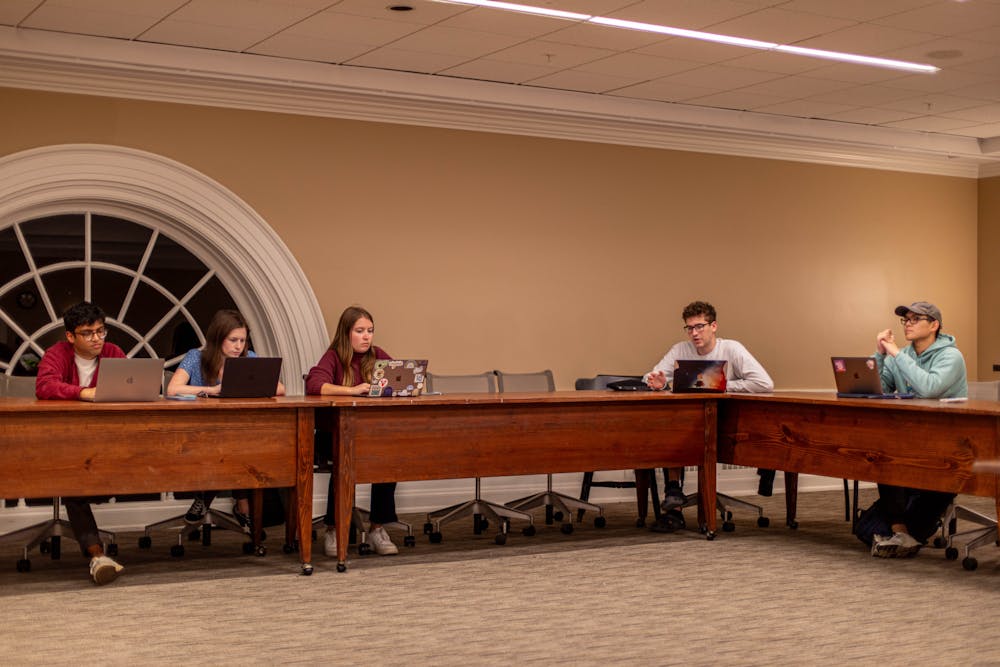The Honor Committee met to consider a change to the bylaws that would suspend all case proceedings during non-school days as well as considering next steps for international student outreach on Sunday. The meeting did not meet quorum with 18 out of 29 members present, meaning the Committee could not vote on matters relating to the constitution or bylaws.
Proposed by Nishita Ghanate, vice chair for investigations and fourth-year College student, the change would suspend all case proceedings during non-school days — University holidays and other breaks — to increase case efficiency. Currently, the bylaw language dictates that only hearing or sanctioning-related proceedings are suspended on non-school days, while general processings related to investigations may continue.
According to Ghanate, continuing case proceedings during non-school days such as the summer break was largely inconvenient for support officers, students and professors, which ultimately made the entire process less efficient. Suspending cases over summer would decrease these difficulties.
“Scheduling interviews around advisors and investigator schedules was incredibly hard because many people were stuck in cases while working part time jobs or internships,” Ghanate said. “It just made everyone a bit more frustrated, [support officers], professors and students included.”
Honor support officers are student members who act as a key part of the Honor system, guiding students through the system and facilitating interviews and investigations. The length of an Honor case can take months from report to sanction.
During public comment, Thomas Ackleson, Honor senior counselor and second-year Engineering student, said that the case processing would be more effective if it were confined to the academic years, but also said the change could sacrifice the quality of the investigation.
“It would be easier to schedule if [the proceedings] were all during the school year — I would probably be more efficient and [there would be] less overall work involved,” Ackleson said. “At the same time, even though the quality of the investigation would be worse, the actual result of the investigation would be improved if we were to continue it over the summer because students [and reporters] would have that initial [memory of the case.]”
Following the passage of the multi-sanction system in March, students who were accused of Honor violations last spring had the option to continue case processings over summer, or wait until July 1 to continue case processing. Prior to the passage of the new system, only case processing actions related to hearings were halted over non-school days. Under the current bylaws, case processing actions related to hearings and sanctionings were halted. Under Ghanate’s proposal, all case processing actions including investigations, hearings, and sanctioning would be halted.
Second-year Engineering Rep. Alexander Church disagreed with the idea of a general rule for non-school day case proceedings, and said students should be given the choice on whether or not to continue their case processing.
“If we can ensure that the advisors can be available and the reporter interview can happen in a reasonable amount of time then we should be giving students the option [to continue case processing],” Church said. “However, if those [resources aren’t available], then we can't do our investigative process properly.”
Due to the Committee not meeting quorum, they could not formally vote on this topic. However, the Committee plans to vote on this proposed bylaw change at the next Committee meeting. The proposed bylaw change, if passed, would act as a general rule, though exceptions would be possible on a case-by-case basis.
Following this, Hamza Aziz, chair of the Committee and fourth-year College student, outlined the Committee’s next steps for making progress on education among international students, who are disproportionately represented in Honor reports.
The Committee is currently planning to organize two international student outreach days on Nov. 27 and Nov. 28, and began a discussion on the fair representation of international students in Honor at their last meeting.
The Committee has reached out to many international student organizations to help plan the event such as the Mainland Student Network, the International Residential College and the International Studies Office. Planning is still ongoing for the event, and exact details have not yet been fleshed out.
The Committee also heard executive and representative reports. There are currently three active investigations, a decrease from four last meeting. One case has since completed proceedings. Also, a hearing has been scheduled for Nov. 10.
The Committee adjourned the meeting at their scheduled end time of 8 p.m. The next Honor Committee meeting will be held Sunday at 7 p.m. in the Trial Room of Newcomb Hall.







